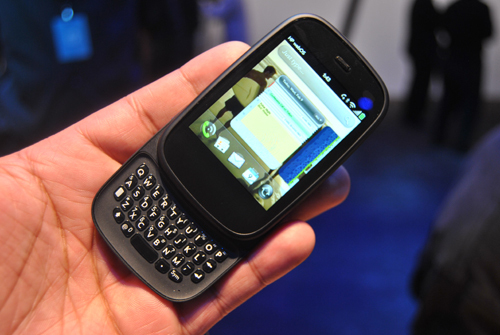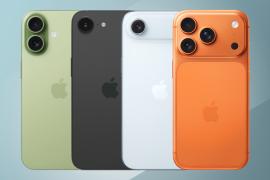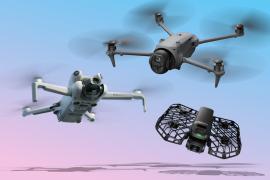HP Veer hands-on
The tiny new HP smartphone gets fondled by our tweezer-like fingers

The TouchPad may have hogged the limelight during HP’s press conference in San Fran this week, but there were some other intriguing announcements – namely the smallest webOS smartphone yet and its pocketable charms. At first glance you wouldn’t even assume HP’s diminutive Veer is a slider – it’s that small. But underneath that credit card-sized 2.6-inch capacitive display sits a teeny little keyboard, which extends from the bottom of the device with a smooth motion and satisfying click.
Despite first impressions, typing is surprisingly manageable, complete with excellent tactile feedback. But if you’re used to thumb-typing on a BlackBerry or the virtual keyboard of an iPhone, you may have a tough time pressing those keys with the tips of your fingers. And while a full QWERTY is on offer, it’s not immediately obvious what some of the keys’ functions are.
Tiny phones usually lack the powerful capabilities of their bigger brothers – just look at the Sony Ericsson X10 and X10 Mini – and while the Veer comes across as more of a feature phone, there’s a proper smartphone hiding underneath its tiny chassis. It helps that it’s driven by an 800MHz Qualcomm Snapdragon processor, offers web browsing with full Flash 10.1 support, apps, multimedia playback, a 5MP camera, GPS, Wi-Fi, Bluetooth 2.1 and 8GB of onboard storage. It even works as a mobile hotspot. Boom.
The small screen isn’t particularly dazzling at 320×400 pixels, but webOS still looks good. Unlike some miniature handsets, the webOS experience isn’t scuppered by the small screen size, bringing to the table all the best bits of the webOS operating system, such as Synergy, which amalgamates email, calendar and contacts from a range of services like Facebook and Google for a more efficient user experience. Then there’s the cleverly designed cards and stacks, to display and group together your open applications as large thumbnails, which you can easily switch between and get rid of with simple swiping gestures. And how could we forget Just Type, HP’s universal search feature?
Despite this, we can’t help but think the Linux-based operating system is much better suited to a bigger screen, and will probably put a time limit on some activities like video playback.
The Veer’s Achilles heel (as with all webOS products) is the lack of available apps, but there’s no denying the core OS functionality is impressive – even on a small screen. Swiping the gesture area brings up the handset’s four main apps – contacts, calendar, mail, and phone – while an upwards swipe pulls up all apps stored on the phone. It’s easy to use, but with a multitude of swiping gestures, it’s not immediately obvious how to operate it.
Web browsing on the Veer is impressively smooth – pages load quickly and render well, but you’ve got no chance of reading the majority of web pages on that tiny screen. Thankfully, the browser’s zoom works smoothly and quickly with a simple pinch gesture.
So while the mobile industry gravitates towards creating larger handsets, HP has done a complete 180 in the opposite direction and wants you to “think small” with its tiny but mighty handset. The Veer may be smaller than most smartphones, but it’s certainly just as capable as its bigger rivals, with a spec list that’s not to be sniffed at. The only two factors working against it right now are the small screen, which isn’t best suited to video playback, and the lack of apps available in the App Catalog. That aside, it seems a rather remarkable handset.



